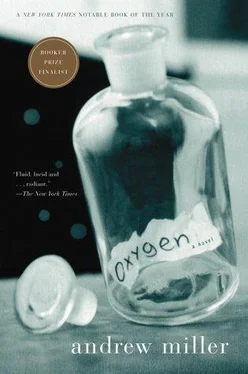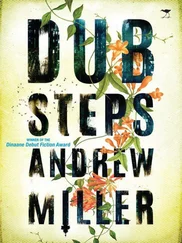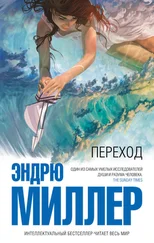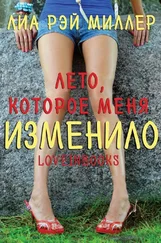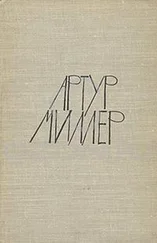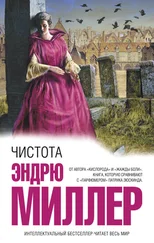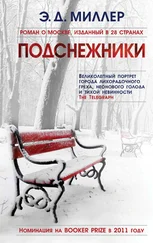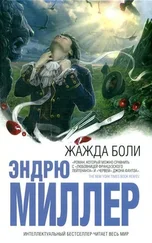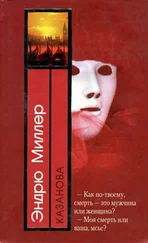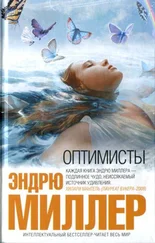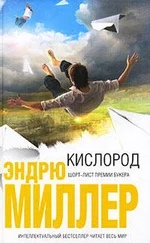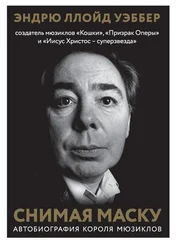It was twenty past before his contact appeared. A tall, darkly dressed figure ambling through the students, another of the famous black bags over his shoulder. It was strange never knowing who would come for you. This one, with his lank hair, his bristly chin, his easy and rather charming smile, looked as though he might play jazz piano in a nightclub.
‘A friend of Françoise?’ he asked, standing at the side of László, though not too close. László got to his feet.
‘To me,’ said the man, gazing up at Lenin, ‘he always looks as if he’s hailing a taxi. But he won’t get one here. Not for a long time.’
‘Where does it go now?’ asked László, nodding to his bag.
‘A little farther,’ said the other. ‘But your part is done. Any trouble?’
‘I don’t feel I’ve done anything at all.’
‘That’s how it should be.’ He put his bag next to László’s. ‘You know, they could plant something here. Grow roses on him. Or is that a very romantic idea?’
‘It’s a good idea,’ said László. ‘But we’ll have to put it to the committee.’
The man chuckled. ‘Of course, Comrade. We must go through the proper channels.’
He reached down and swung László’s bag on to his shoulder.
‘It’s heavy,’ said László.
‘Good. You have a car?’
‘Yes.’
‘You go first.’
‘Do we shake hands?’
‘It’s quite optional,’ said the man. He held out his hand. ‘Until next time.’
In the carpark, Tibor was sharing a story with the driver of the tour bus. The only other vehicle was a small, slightly battered Toyota that presumably belonged to the contact.
‘The heat bothering you?’ asked Tibor, opening the rear door.
‘A little,’ said László. His shirt was stuck to his back, and from his chest he thought he could hear a distinctive wheezing, like those poor asthmatics he sometimes came across in the street or the Metro, fumbling in their pockets for an inhaler. More of them all the time, it seemed. A sly epidemic.
Tibor started the engine. The air-conditioning came on. ‘Where to?’ he asked. ‘Back to the hotel?’
‘No,’ said László, after a pause. ‘Drop me by the Gellért. I’ll walk the rest of the way. It’ll do me good.’
‘You’re the boss,’ said Tibor, and he bounced the car on to the road, the rear wheels kicking up a cloud of dust that hung for several seconds in the air behind them.
By the terrace café outside the Gellért Spa, László settled his fare, then set off towards Petofi bridge, turned right on Lajos ut, and entered the grounds at the back of the Technical University, where students, relaxing in the sunshine, sat on wooden benches, or lounged in small groups on the grass, reading, talking, flirting.
It was here that Péter had studied in his first year of training to become an electrical engineer. László had often visited him, and had memories of tall green corridors, the smell of soldering irons, the whirr of the machinery in the demonstration rooms. Péter had even tried to persuade László to join him at the school, but László had had quite different ambitions. A sharp-looking, sharp-minded young man, vain and shy and talkative, he had harboured immoderate dreams of artistic glory. He thought he might be a great film director (he was a regular at the Corvin Film Palace), or some kind of Hungarian Picasso. He wanted to live freely, have a lakeside villa at Balaton, perhaps even work in Hollywood like Mihaly Kertesz. For that one summer of his life – before anything had been attempted, anything failed at – everything felt possible. Why not? He was seventeen, fired by love, and all around him, as though history were rooted in the excitements of his own heart, his country, frozen for so long like a kingdom in a fairytale, was beginning to thaw.
In July ’56, First Secretary Rákosi, the arch-toad, the arch-Stalinist, was dismissed on the orders of the Moscow Politburo. In October, they exhumed László Rajk, hanged after a show trial in ’49 (his old friend Kadar had persuaded him to ‘confess’), and reburied him with state honours at the Kerepes cemetery. In Warsaw the Poles defied Krushchev, and across Budapest, as the weather turned crisp and hoar frost glittered on the trees along the Danube, the first mass meetings began. Here, at the Technical University, the evening of the 22nd, Jozsef Szilágyi and István Marián spoke of ‘the sunrise of modern Hungarian history’, and the next day a crowd of students and workers (many of the latter still in their overalls from the factory floors) marched to the statue of the Polish hero, General Bern, and crossed the bridge to Parliament Square. ‘Now or never!’ they chanted. ‘Russians out! Nagy into government!’
From believing they could do nothing, the people were suddenly convinced of their power. Changing the world might, after all, require nothing more than the belief that change was possible. In the space of a few hours, thousands of minds blossomed with the same remarkable idea: freedom. On a rooftop by the square, László saw a young woman waving a Hungarian tricolour with the Soviet insignia torn from the middle. By nightfall the bronze Stalin at City Park had been toppled and the radio station was under siege. The government panicked; threatened crackdowns; appealed for calm; offered amnesties; but nobody was listening to them any more. Bookstores were raided and Russian books burned on bonfires on the streets. Councils were formed. Armouries looted. On the boulevards, Russian tanks, twitching on their own fuel slicks and belching clouds of diesel fumes, hunted their invisible enemy. Everywhere, rumours of fresh fighting, of massacres, of victory. And under the dust from shelled apartment blocks and burned-out shops, under the tangled tramlines and the red and golden leaves of shattered trees, corpses lay in postures exclusive to the dead, many of them Red Army conscripts no older than László, boys from Kharkov and Kiev, who must at the end have wondered how they had earned such hatred, why children were killing them.
László pushed the sweat from his eyes, and walked along the drive to where it was crossed by double rows of squat stone pillars that carried a passageway to one of the outbuildings. He put down the bag and squinted ahead: the drive curved towards a second gate, hidden from the pillars, then as now, by a line of trees. He could not quite believe he was back. Was there some buried fragment here – a scrap of cloth, a cartridge case – that would prove it? But this was it all right. This was where he had stood in the grey of a November afternoon, waiting for Péter and Zoli to return. They had taken the Skoda – the old black ‘Spartak’ – to the Szentkiralyi barracks to bring back ammunition. The rest of the gang – Feri, Joska, Karcsi and Anna – were in the college print room, running off another batch of proclamations and demands, to be fly posted around the city after dark. László was on guard duty (it was merely his turn), patrolling between the pillars in leather cap and belted jacket, his nose and ears ringing with the cold. He had been given the precious tommy-gun, and Feri, the old man of the group at twenty-two, the only one who had actually done any military training, had explained how to use it.
‘Don’t shoot like a gangster, Laci. Fire from the shoulder. Short bursts. You’ve got seventy-two bullets in the magazine. That’s enough to hold off a battalion. And if it jams for Christ’s sake don’t look down the barrel or you’ll blow your head off. Got it?’
Got it.
He had not expected to use it. Thus far he had avoided even handling a gun – there were always plenty of others who couldn’t wait to get hold of one – keeping himself useful with driving and stretcher-bearing and running errands. But when he heard the car, and knew from the speed at which it was coming that something was wrong, he dragged the weapon from his shoulder, pushed the safety off, and thought himself ready. From the gates on Budafokí ut there came the smack of metal on metal, and seconds later the Skoda swung into view, Zoli at the wheel fighting to keep control but coming much too fast, swerving to avoid the trees but somehow bouncing off the side of one and toppling the car on to the driver’s side, where it spun in a sheet of sparks before coming to a stop.
Читать дальше
